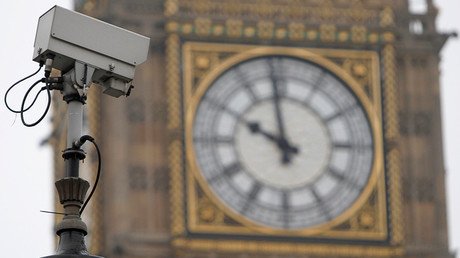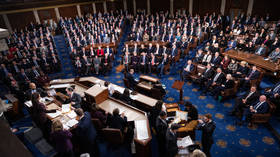Mass surveillance bill ‘not incompatible’ with privacy rights - MPs

Bulk data collection sanctioned under Home Secretary Theresa May’s Investigatory Powers Bill is not “inherently incompatible” with privacy rights, says a committee of MPs and peers.
In a report on the proposed surveillance laws, the Human Rights Committee said the powers codified in the bill “are capable of being justified if they have a sufficiently clear legal basis.”
Though the committee generally praised the bill, which has undergone a series of transformations after it was heavily criticized by three separate parliamentary committees, it noted that additional protections for MPs’ communications and journalists’ sources were needed to ensure the government did not abuse its powers.
“The bill provides a clear and transparent basis for powers already in use by the security and intelligence services, but there need to be further safeguards,” committee chairwoman Harriet Harman said.
“Protection for MP communications from unjustified interference is vital, as it is for confidential communications between lawyers and clients, and for journalists’ sources, the bill must provide tougher safeguards to ensure that the government cannot abuse its powers to undermine Parliament’s ability to hold the government to account."
Welcoming the committee’s report, a Home Office spokesperson said, “The government has always been clear, we will listen to the constructive views of politicians from all sides of the House to ensure the passage of this important bill.
“We have encouraged rigorous scrutiny of the bill, which responds to three independent reports all of which recognized that new legislation in this area is absolutely essential.”
Last week, May made a number of concessions, including committing to an independent review of the operational case for powers that allow bulk personal data collection and hacking as well as protection from surveillance for legitimate trade union activities.
Labour, however, intends to push for further changes in several key areas, including using internet connection records only in serious crime cases, toughening rules on the judicial authorization of intercept warrants, and increased protections for legal and journalistic confidentiality.
Parliament is expected to meet next Monday to further discuss the controversial bill, which the government hopes to push through by the end of the year.
The draft law has been widely criticized by civil liberties campaigners who argue that provisions such as the one which allows the government to store and collect web history for 12 months go too far.













